Buy Alphalan : Melphalan 5 Mg Tablets Online
$81.48
Brand Name : Alphalan
Composition : Melphalan
Manufactured by : Natco Pharma Ltd.
Strength : 5 mg
Form : Tablets
Packing : Pack of 25 Tablets
Prescription Required:
Alphalan is a medication used to treat multiple myeloma, ovarian cancer, and other types of cancer. It contains the active ingredient Melphalan, which belongs to a class of drugs called alkylating agents. Alphalan works by interfering with the DNA of cancer cells, preventing them from dividing and growing.
Uses:
Alphalan is used to treat:
– Multiple myeloma
– Ovarian cancer
HOW TO USE:
Alphalan tablets should be taken orally, with or without food. The recommended dose is usually based on the patient’s body weight and medical condition. The tablets should be swallowed whole with a glass of water. The dosage may vary based on the patient’s medical condition, response to treatment, and other factors. It is recommended to take Alphalan at the same time each day.
Storage Conditions:
Alphalan should be stored in a cool, dry place below 25°C (77°F). Keep it away from direct sunlight, heat, and moisture. Ensure that the medication is kept out of reach of children and pets.
Mechanism of action:
Alphalan works by interfering with the DNA of cancer cells, preventing them from dividing and growing. It damages the DNA, causing the cancer cells to die. It is an alkylating agent that directly affects the cancer cells and prevents them from spreading.
Precautions:
– Alphalan may increase the risk of infection, so patients should avoid close contact with individuals who have an infection.
– Alphalan may cause bone marrow suppression, so regular blood tests are required while on prolonged therapy.
– Patients may experience nausea, vomiting, or diarrhea, so a proper diet and hydration are essential to minimize these effects.
– Alphalan may cause temporary hair loss, so patients should avoid scalp injuries and use soft bristle brushes during this period.
Contraindications:
Alphalan is contraindicated for patients who:
– Are allergic to Melphalan or any of its ingredients
– Have a history of severe bone marrow suppression
– Have impaired kidney function
– Are pregnant or breastfeeding
Drug Interactions:
Alphalan may interact with other medications and affect their effectiveness or increase the risk of side effects. Patients should inform their doctor if they are taking any prescription or over-the-counter medications, vitamins, or herbal supplements.
Overdose:
In the event of an overdose, patients should seek immediate medical attention. Symptoms of overdose may include bone marrow suppression, nausea, vomiting, and lethargy.
Side Effects:
Alphalan may cause side effects, which may vary from mild to severe. Common side effects include:
– Nausea and vomiting
– Diarrhea
– Mouth sores or ulcers
– Temporary hair loss
– Decreased appetite
– Fatigue
Less common but serious side effects include:
– Bone marrow suppression
– Infections
– Hepatotoxicity (liver problems)
– Allergic reactions
Patients should inform their doctor immediately if they experience any serious or persistent side effects.
Be the first to review “Buy Alphalan : Melphalan 5 Mg Tablets Online” Cancel reply
Related products
Anti Cancer
Anti Cancer
Anti Cancer
Anti Cancer


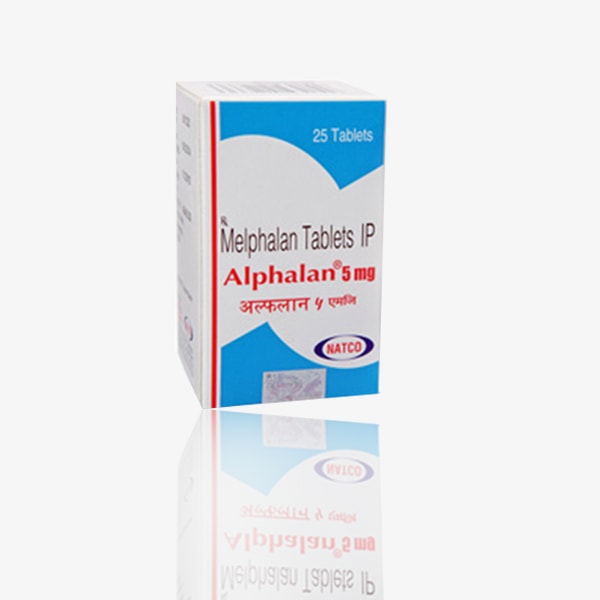
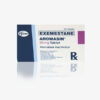
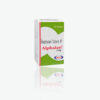
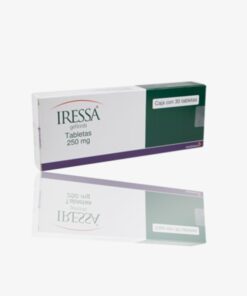
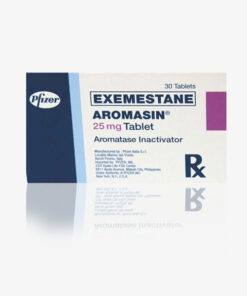
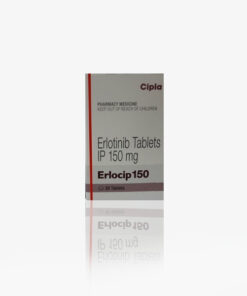
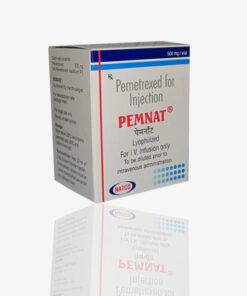
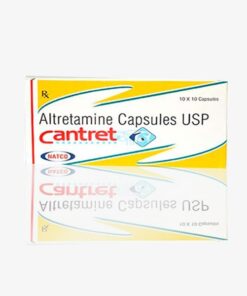
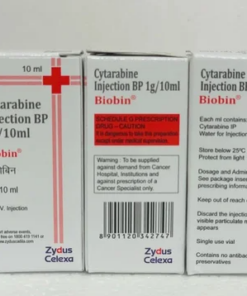
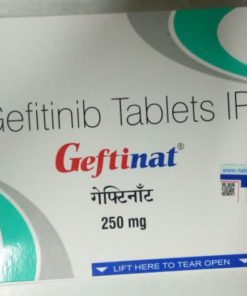
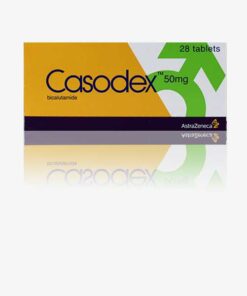
Reviews
There are no reviews yet.